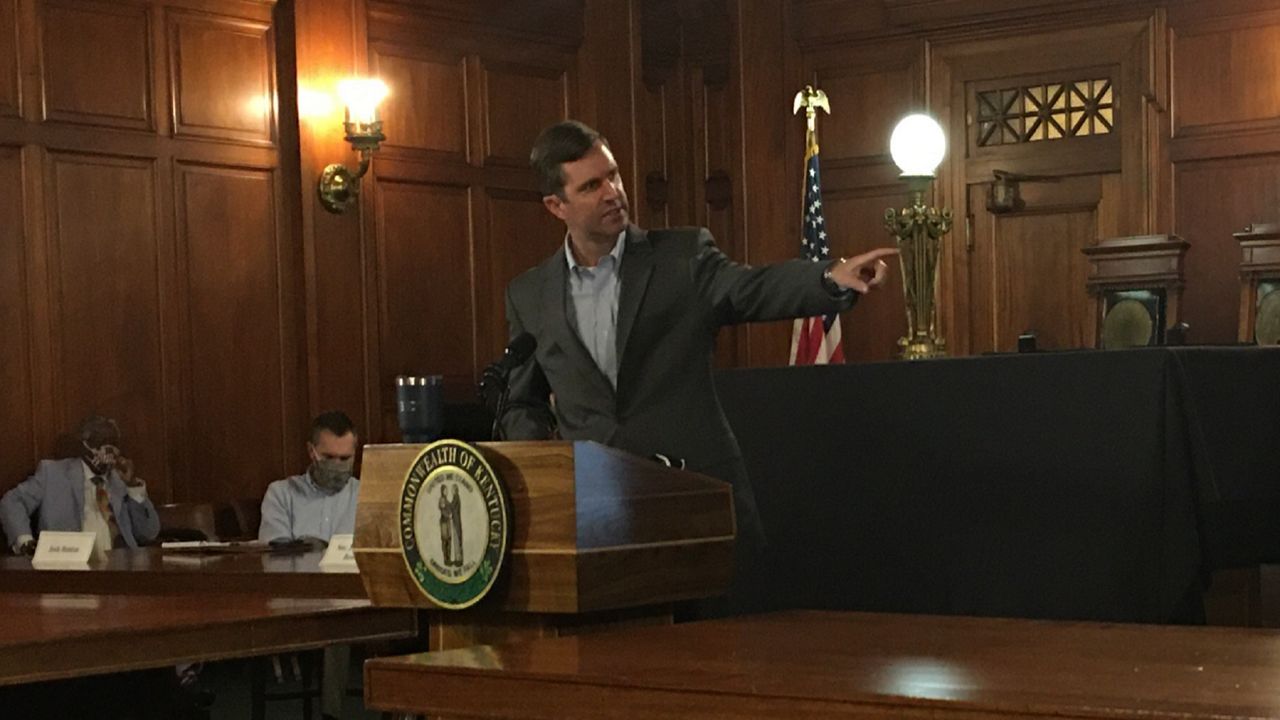FRANKFORT, Ky. (AP) — Kentucky Gov. Andy Beshear announced new limits on social gatherings and a travel advisory Monday as COVID-19 cases surged to new highs over the weekend.
The Democratic governor’s announcement comes after a record-breaking number of nearly 1,000 cases were reported Sunday, capping off a week of elevated daily case counts. Kentucky reported 258 new cases and one death Monday, though the number is much lower because many of the state’s testing centers were closed Sunday, Beshear said.
“We’ve just got to realize the stakes just got a lot harder and this war is going to be a lot longer than we had hoped,” Beshear said during an afternoon pandemic briefing. He said he expected the newly reported case numbers to be higher than Monday’s by the middle of the week.
Under a new advisory announced Monday, Kentuckians who travel to nine hot spot states reporting positive testing rates equal or greater than 15% are now recommended to undergo a 14-day self-quarantine.
Beshear also imposed a new restriction on social gatherings, reducing the limit from 50 to 10. He said the new rule doesn’t apply to businesses or wedding venues.
Beshear said case clusters have been traced to residents who have recently returned from vacations or attended large gatherings such as block parties or barbecues.
As of Monday, Kentucky recorded a positive testing rate of about 4.5%, up 2 percentage points since late June, the governor said.
The percent positive testing rate is an indicator of the extent of the spread of the virus, according to the World Health Organization. If the positive is less than 5% for two weeks and testing is widespread, the virus is considered under control.
“All the indications are that we are in that accelerated phase,” said Dr. Steven Stack, commissioner of the Department of Public Health. “Sunday was a wake-up call.”
The states included in Beshear’s travel advisory are Alabama, Arizona, Florida, Georgia, Idaho, Nevada, South Carolina, Texas and Mississippi.
For most people, the new coronavirus causes mild or moderate symptoms, such as fever and cough that clear up in two to three weeks. For some — especially older adults and people with existing health problems — it can cause more severe illness and be fatal.



